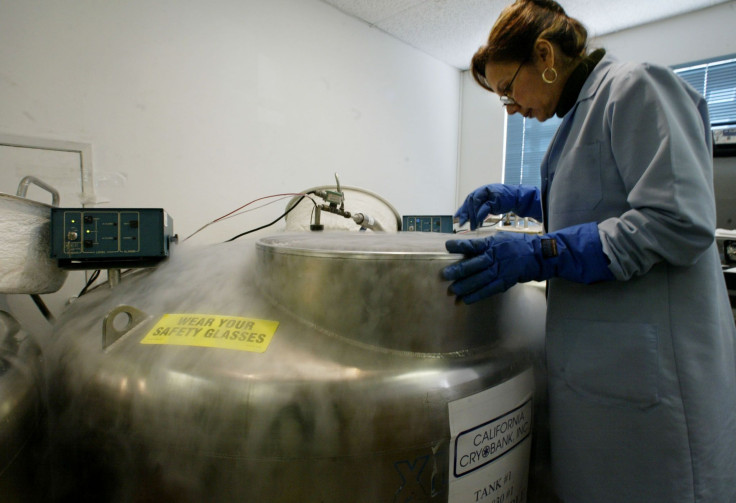Cryogenic Freezing: Terminally Ill Teenager’s Body Preserved After Court Case

A terminally ill teenager in the United Kingdom won the right for her body to be cryogenically frozen, in the hope she could be revived and cured at some point in the distant future. While the technology for preserving bodies in itself is not new, what’s remarkable about this 14-year-old’s case is the legal wrangling that led up to it.
The girl, who can’t be named in accordance with U.K. laws, suffered from a rare form of cancer. Her parents were divorced, and her father — with whom she reportedly had no contact for six years before becoming ill — was against her desire for her body to be preserved, while her mother supported her wish.
The girl and her mother lived in the London area. The U.K. has no cryogenic facilities, which are available only in the United States and Russia. In these facilities, bodies are preserved in liquid nitrogen at temperatures around or less than 200 degrees Fahrenheit below 0. The girl’s mother wanted to preserve her daughter’s body at a U.S. facility.
“Even if the treatment is successful and she is brought back to life in let’s say 200 years, she may not find any relative and she might not remember things and she may be left in a desperate situation given that she is only 14 years old and will be in the United States of America,” her father said, the BBC reported.
However, as the case in the court — about which of the two parents, or both of them, had the right to decide what to do with the girl’s body after she died — went on, the man changed his position.
“I respect the decisions she is making. This is the last and only thing she has asked from me,” he reportedly said.
The girl had refused to have any contact with her father for the last several years, did not want details of her illness shared with him and did not want him to see her body after she died, according to the Justice Peter Jackson, who met with the girl in the hospital since she was too ill to attend court hearings.
The girl died in October and her body was brought to the U.S., where it was frozen, as per her wishes.
While the legal case had nothing to do with the actual science involved in the procedure or laws surrounding it, but only concerned custody of the girl’s body after she died, cryogenics is nowhere near being advanced enough to bring someone back to life even if the body has been preserved perfectly.
© Copyright IBTimes 2024. All rights reserved.











